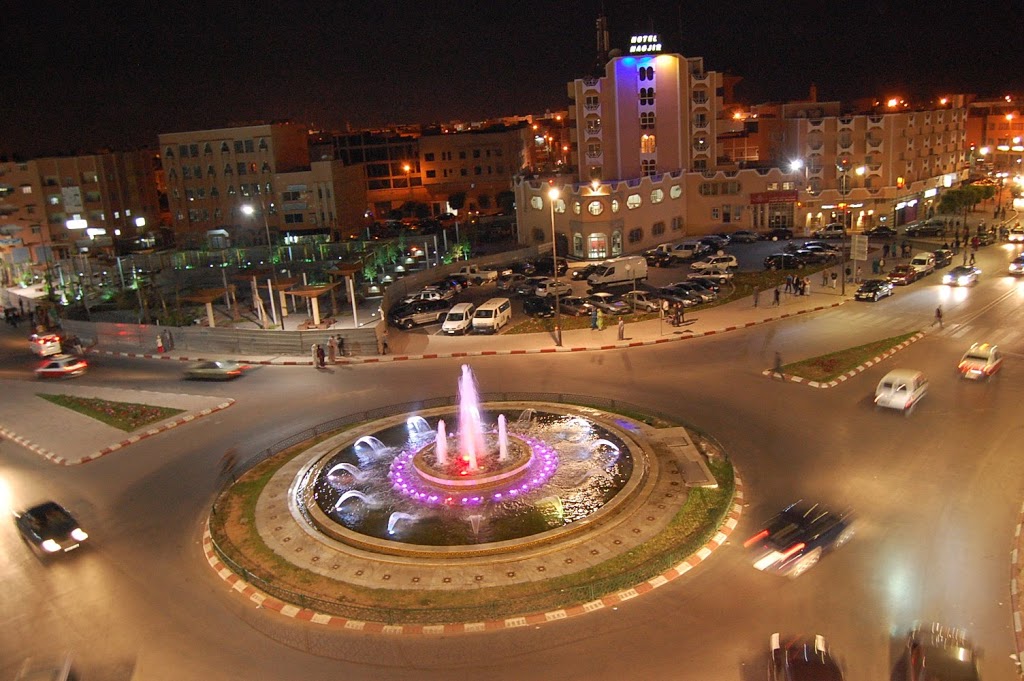
Violence Should Never Be Condoned
If we don’t believe in the freedom of expression for people we despise, we don’t believe in it at all. Noam Chomsky
Following the security forces’ use of disproportionate force to disperse teachers who were peacefully protesting in the streets of the capital Rabat last Tuesday, the Moroccan society seems to have been divided into two factions. The first one condemns the use of disproportionate violence against peaceful protestors. This faction represents the majority of the Moroccan society who denounced violence against teachers whether they agree or disagree with teachers’ demands. The second faction, on the other hand, shamelessly condones this aggression under the pretext that the teachers’ demands are illegitimate and unfounded. The fact that a small group of people condones violence is indicative of a deeper and more sinister issue within our society; it is that these people are willing to justify violence against those with whom they disagree. While it is heartwarming to see the majority standing with teachers and consoling them, it is heartbreaking to see a small section of people rubbing salt into the forlorn teachers’ wounds.
It is both shocking and morally reprehensible for me at least to hear people condone violence and justify it. It is like those who abuse their wives physically and emotionally and go on to justify it, saying that “they don’t listen”, as if that gives them the right to inflict harm on them. No one has the right to use violence against the people with whom they disagree because that is the foundation of tyranny. It is particularly distressing when the people who are entrusted with the duty to protect us are the ones who abuse us. Worse than that, it is even more heartbreaking to see fellow citizens rally in support of such human rights violations. In the face of such flagrant disregard of humanity, I once again wonder: what sense of morality allows people to condone violence against those with whom they disagree? And more importantly, is freedom of expression still a far-fetched reality for those people who are clearly oblivious to the meaning and significance of this right?
The violations that took place during the protest as well as the reaction of some people offer us answers to the abovementioned questions. One incident in particular clearly shows where we stand in the issue of freedom of expression. A video featured an officer of the Moroccan security forces as he stopped a teacher from giving a statement to a newspaper. Despite the fact that the video was widely circulated on social media, very few people paid heed to the significance of the act. There is clearly more to this than meets the eye. Some have interpreted it as a message from the Moroccan government to all dissidents.
Another alarming incident is that of the now notorious man who was dressed in civilian clothes. A viral video featured a civilian-clothed man attacking unsuspecting teachers under the watchful eyes of security forces who did absolutely nothing to stop him. This video in particular has saddened many Moroccans, including myself, who, by and large, rallied in support of teachers and condemned this aggression. It is worth noting the King’s prosecutor in Rabat has issued a statement, urging the authorities to open an investigation into this incident. As we wait for the findings of this investigation, we hope that charges are brought against him for infringing the physical well-being of citizens in a clear violation of our constitution.
I’m not arguing that people shouldn’t have the right to disagree with me or others. In fact, I find the statement of Chomsky to be particularly enlightening in this context. I may not approve of the opinions of many, but I am willing to defend their right to express them. That is the very definition of freedom of expression and the foundation of a free, pluralistic, and democratic society, not a society where the opinions of some matter more than those of others. Obviously, the faction that condones violence is either brainwashed or oblivious to the foundations of a free, democratic society. Either way, the only way for this group of people to learn is to listen to the very teachers they so fervently abhor.
Finally, the Moroccan constitution guarantees us the right to freedom of expression and peaceful assembly. Denying teachers’ media platforms and using excessive violence to disperse their peaceful demonstrations are, without a shred of doubt, wrong. When these actions receive the support of a faction within our society, no matter how small or insignificant it is, one cannot help but wonder what the future has in store.



